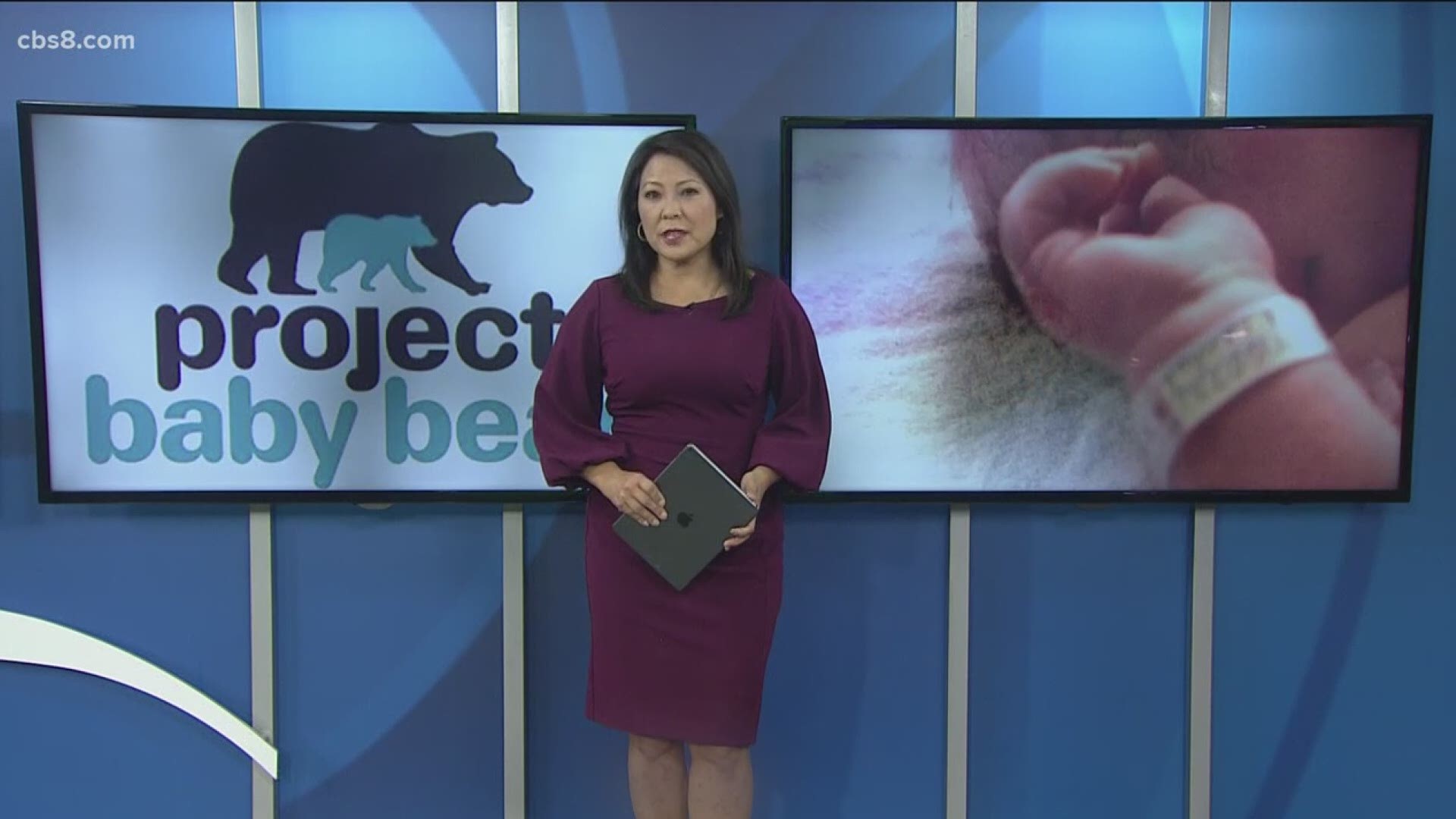SAN DIEGO — Medical innovation, developed at San Diego’s Rady Children’s Hospital is helping doctors save the lives of babies with rare genetic diseases.
The new state-funded pilot program called Project Baby Bear hopes to make genomic technology available to all critically ill babies and infants who are covered by Medi-Cal.
Nearly 3,000 babies are born in California each year with a genetic disease, which means there's something wrong with their genome code.
Dr. Stephen Kingsmore is president and CEO of Rady Children's Institute for genomic medicine in San Diego. He also holds the Guinness World Record for fastest genetic diagnosis – 19.5 hours. It is a process that typically takes weeks, or even months, to deliver results.
The whole reason for setting the world record was because some babies are so sick, they can’t wait a couple of days for a cure and need an answer in one day. If we don't get it in time, they'll have damage to their brain or other organs.
The institute's rapid whole genome sequencing uses cutting edge technology, developed by San Diego based Illumina. The sequencer can analyze a baby's DNA for some 14,000 genetic diseases – allowing doctors to come up with a diagnosis and treatment plan that saves lives.
“It makes me feel really good, but it also puts pressure on because there are 30,000 babies a year in North America who need this. We are doing hundreds,” said Dr. Stephen Kingsmore.
The groundbreaking state-funded pilot program, Project Baby Bear, hopes to change that. The $2 million Medi-Cal funded project is led by Rady Children’s and is making the diagnostic testing available to about 150 babies at five hospitals in the state.
The goal of Project Baby Bear is to show that genome sequencing, while costly, saves lives and should be covered expenses for all Medi-Cal covered babies in California. Dr. Kingsmore said it could end up paying for itself.
The other thing about it, it saves money, “said Dr. Kingsmore, who explained, “These babies don’t need to stay in the hospital for months. They can promptly go home on the right treatment.”
Assemblymember Brian Maienschein (D-San Diego) and Assemblymember Rob Bonta (D-Oakland) are co-chairs of the California Legislative Rare Disease Caucus. They strongly support the use of genome sequencing in Medi-Cal for critically ill newborns and requested the testing be added to the California budget. Maienschein said, “We’ve already treated over 105 babies. We know statistically that some of them would have died.” He calls it a huge achievement, adding “We’re going to have all these kids, these babies, get good treatment and we’re going to save the healthcare system millions of dollars. It really is a win-win.”
Project Baby Bear is expected to wrap up next month and then the data from those babies treated will be presented to the Secretary of Health in hopes it will be approved as a Medi-Cal covered expense at all California hospitals – covering about half of all babies in intensive care.
A lot of eyes are on California as other states like Florida just started doing the same thing. Some private insurers have begun to cover whole genome sequencing.

